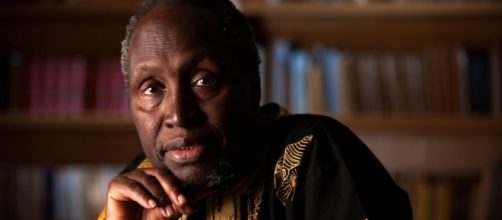The Nobel prize in literature of 2016 was awarded to Bob Dylan. By now, you already know this, and perhaps you have formed an opinion about the justice that has been made, or the silliness of giving the Nobel to someone that is rather a musician than a writer. A few days ago, there were some correct assumptions, as were veiculated by Firstpost; it was said thatthere was room for a new category of authors who hadn'n yet won, and Dylan follows the documentary style of Svetlana Alexievich of 2015, and the short story with Alice Munro the year before.
Also, it was long since an American had won the last time; and Odd Zschiedrich, the Academy's director, even said that they want to do a surprise. Indeed, it was.
Anyway, it's time to meet the main "runners-up" to the "title", those big names of universal literature that were considered among the favourites, and will likely be again in 2017.
Haruki Murakami, from 'Norwegian Wood' to '1Q84'
The Japanese author is undoubtly one of the strongest permanent candidates to the Nobel in Literature. Born in 1949, he his widely acclaimed worlwide, mainly for his fiction stories where the themes of loneliness and alienation are usually developed. His most well-known books are A Wild Sheep Chase (1982), Norwegian Wood (1987), Kafka on the Shore (2002), and 1Q84 (2010).
However, he is also capable of writing beautiful short stories, like the compilation of, published in 2000, under the title After the Quake. Surrealism and humor are quite present in Murakami's writing. In his home country, some critics point out that his writing his not quite Japanese, and it suffered too much influence from Western literature.
Adunis, the critic
Ali Ahmad Said Esber, born in 1930, lives in France since 1975 and is deemed to be the greatest Arab poet of our time. He is considered to have influenced the entire Arab poetry during the second half of the twentieth century. In spite of some of his writings praising the heyday of the Islamic cultural influence, in the Middle Ages, Adunisis considered a critic of religious values, and that costed him receiving death threats.
He opposed foreign military intervention in Syria and also criticized the Syrian opposition.
Ngũgĩ wa Thiong'o, the African representative
The Kenyan writer has a long story of "displaying the crimes of colonialism" and the inheritance that Africa had to face after decolonisation, according to a Swedish journalist who tipped him for the 2016 Nobel. Born in 1938,Ngũgĩ waThiong'o is famous for speaking about the need of a decolonisation of the mind (Decolonising the Mind: The Politics of Language in African Literature, published in 1986). That was the main reason for him to quit writing in English and start writing primarily in Gikuyu, his mother language, spoken by around 6 million people in Kenya.
He faced years in prison for political reasons, opposing his country's dictatorship, and his first Gikuyu book, "Detained" (1981), was about his prison experience.
Thiong'o's missing the Nobel was felt in Kenya. The newspaper Nairobi News, while announcing that their "national hero" had lost to Dylan, remembered that only four Africans have won the Nobel prize in Literature.
Who do you think will, or should, win the Nobel prize in Literature next year? Leave your opinion below!

